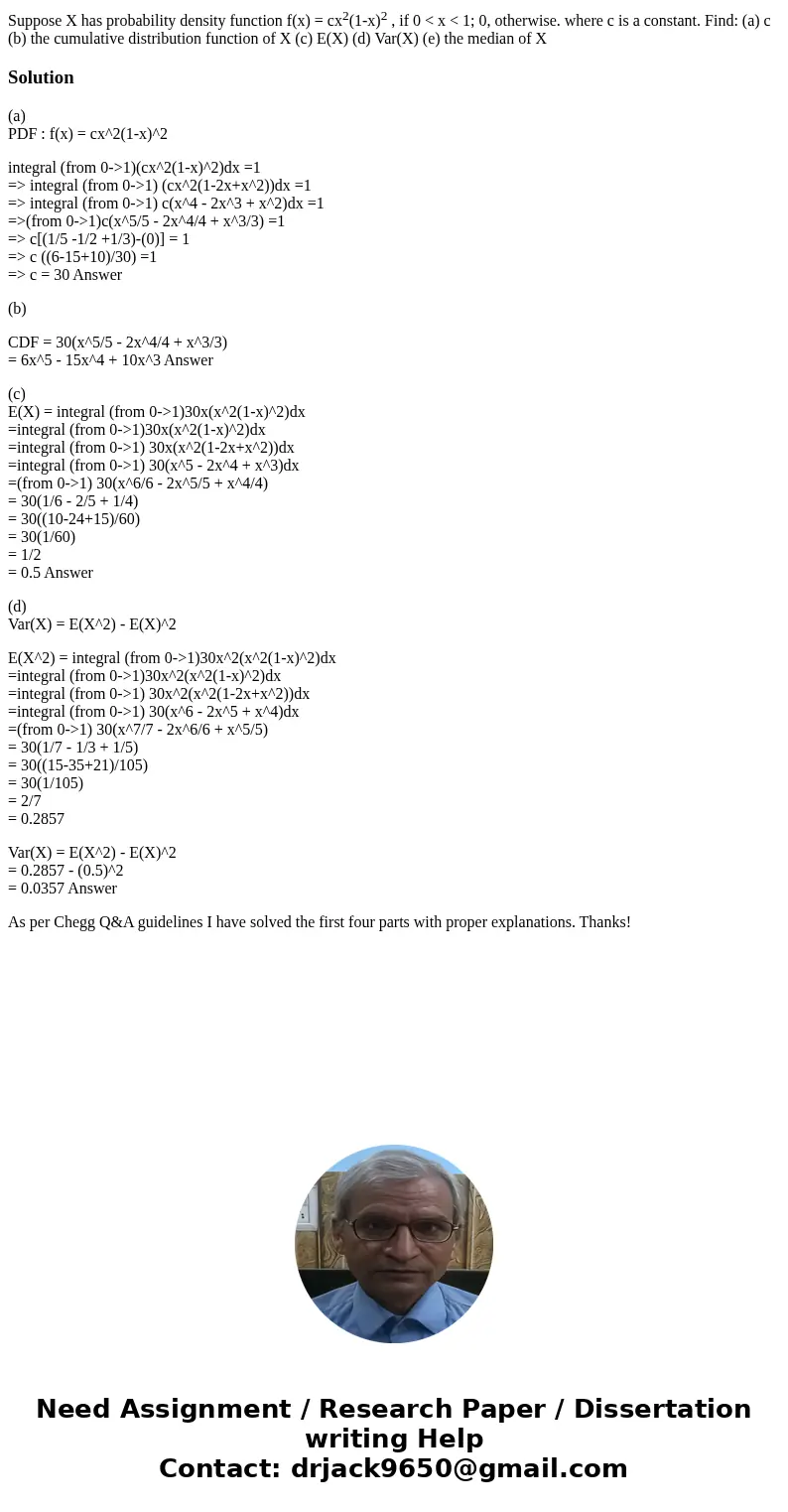Suppose X has probability density function fx cx21x2 if 0
Suppose X has probability density function f(x) = cx2(1-x)2 , if 0 < x < 1; 0, otherwise. where c is a constant. Find: (a) c (b) the cumulative distribution function of X (c) E(X) (d) Var(X) (e) the median of X
Solution
(a)
PDF : f(x) = cx^2(1-x)^2
integral (from 0->1)(cx^2(1-x)^2)dx =1
=> integral (from 0->1) (cx^2(1-2x+x^2))dx =1
=> integral (from 0->1) c(x^4 - 2x^3 + x^2)dx =1
=>(from 0->1)c(x^5/5 - 2x^4/4 + x^3/3) =1
=> c[(1/5 -1/2 +1/3)-(0)] = 1
=> c ((6-15+10)/30) =1
=> c = 30 Answer
(b)
CDF = 30(x^5/5 - 2x^4/4 + x^3/3)
= 6x^5 - 15x^4 + 10x^3 Answer
(c)
E(X) = integral (from 0->1)30x(x^2(1-x)^2)dx
=integral (from 0->1)30x(x^2(1-x)^2)dx
=integral (from 0->1) 30x(x^2(1-2x+x^2))dx
=integral (from 0->1) 30(x^5 - 2x^4 + x^3)dx
=(from 0->1) 30(x^6/6 - 2x^5/5 + x^4/4)
= 30(1/6 - 2/5 + 1/4)
= 30((10-24+15)/60)
= 30(1/60)
= 1/2
= 0.5 Answer
(d)
Var(X) = E(X^2) - E(X)^2
E(X^2) = integral (from 0->1)30x^2(x^2(1-x)^2)dx
=integral (from 0->1)30x^2(x^2(1-x)^2)dx
=integral (from 0->1) 30x^2(x^2(1-2x+x^2))dx
=integral (from 0->1) 30(x^6 - 2x^5 + x^4)dx
=(from 0->1) 30(x^7/7 - 2x^6/6 + x^5/5)
= 30(1/7 - 1/3 + 1/5)
= 30((15-35+21)/105)
= 30(1/105)
= 2/7
= 0.2857
Var(X) = E(X^2) - E(X)^2
= 0.2857 - (0.5)^2
= 0.0357 Answer
As per Chegg Q&A guidelines I have solved the first four parts with proper explanations. Thanks!

 Homework Sourse
Homework Sourse